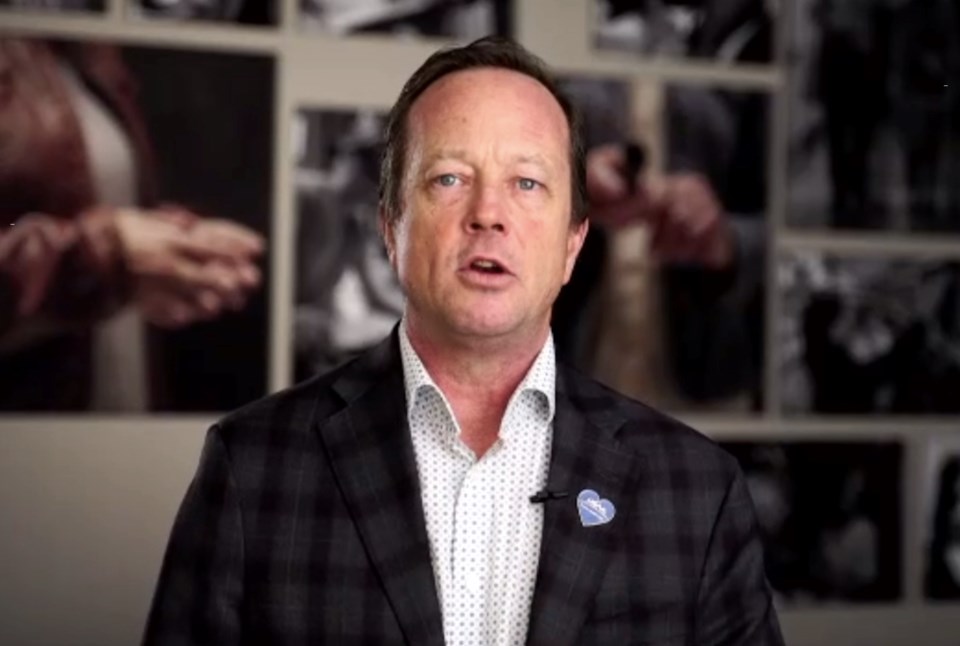The president of the union that represents 28,000 health-care professionals in Alberta is calling on the provincial government to better support the sector’s workers.
Mike Parker, president of the Health Sciences Association of Alberta (HSAA) held a press conference Jan. 17, where he outlined three demands the union is putting on the government.
“HSAA members have been and will continue to be there when Albertans need care,” he said. “But a decade of government inaction to ensure we have enough health-care professionals is taking a toll.”
According to Parker, the week of Jan. 11 started with 266 unfilled paramedic shifts across the province. Meanwhile, he said three labs in Edmonton were shut down indefinitely this past weekend due to staff shortages.
The HSAA’s three demands, Parker outlined in the press conference, include better physical protections for health-care workers in the form of improved personal protective equipment (PPE), more comprehensive protection of employees’ mental health and well-being, and an improved plan to recruit and retain health-care professionals.
On the PPE front, Parker claimed he has heard many complaints from HSAA members who have not received KN95 masks from their employers, despite a provincial government promise the fitted masks would be in place.
“Anyone working in the public should have access to an N95 mask immediately,” Parker said. “We need to ensure our members stay healthy and aren’t taking on the additional strain of worrying about bringing COVID back to their families.”
According to Parker, HSAA members have been under significant strain in the last decade with heavy workloads, long hours and significant psychological strain.
The HSAA president said it is customary for paramedics to respond to 10-to-15 calls a day, and then be dispatched to another long response during their drive home.
In response to Parker's comments, AHS distributed the following statement to the Great West with regard to PPE, allotted time off, and staffing levels.
“As per the updated joint statement on the safe and effective use of PPE in clinical settings, all clinical and non-clinical health care workers who are within two metres of a patient with suspected, presumed, or confirmed COVID-19, will wear a fit-tested N95 respirator, gown, gloves, and eye protection,” the release stated.
“EMS has an adequate supply of N95 masks, and EMS staff are using these.”
The statement went on to contradict Parker's comments about workers being refused time off as a result of burnout.
“EMS continues to see an increase in emergency calls due to several combined factors, including the COVID-19 pandemic, opioid concerns, and emergency calls related to people returning to regular levels of activity,” it read. “All call types have increased, and staff illness and fatigue are also contributing to challenges in the EMS system.
“To ensure shifts are filled, AHS EMS redeploys supervisors to frontline duty and is also offering overtime to staff who are willing to fill shifts. At times, we may temporarily reposition units from other communities or defer non-urgent transfers to address shift gaps, and may also use a single paramedic response units as needed.”
The health authority also said it has brought on additional paramedics to help with the staffing crunch, adding AHS has increased the number of Alberta's paramedics by nine per cent over the last two years.
“EMS has also brought on additional staff and ambulances and filled 100 paramedic positions across the province as well as working closely with hospital teams to ensure timely flow through our emergency departments, the statement read.
“EMS staff are working extremely hard to provide timely care to Alberta patients and we thank them for their tireless service.”
“Despite the incredibly difficult times we’re in and the end unknown, the health-care professionals in this province continue to show up,” he said. “It’s what we do and who we are, but we need to be supported by this government and our employers.”
Among the HSAA’s three demands include promised psychological safety measures, such as more days off, an appropriate workload, and not facing punishment if they cannot come into work.
“We have pressure from employers to aggressively encourage our folks back to work again,” he said.
A recent HSAA survey indicated 40 per cent of union members responded would consider reducing their hours or leaving the health-care sector completely.
Parker claimed most weeks in Alberta see over 200 vacant paramedic shifts.
“If we’re going to recruit to solve these issues, we need a health-care system that people want to work in,” he said. “That means a strong public sector system that treats its workers like the heroes they truly are.
“COVID and the opioid crisis are making the current situation worse, but it’s been deteriorating for a long time,” he added. “A health-care system should be built to withstand a crisis, and that requires adequate resources, including people.
“All Alberta health-care workers need the help of this government so we can continue to be there for all Albertans.”




